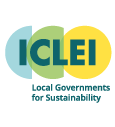In this panel discussion, the difficulty associated with addressing increasing complexity will be a springboard for fostering a deeper conversation around innovation and equipping cities to address persistent and future challenges. The first issue that local governments will need to address is that one-off sustainability and climate action projects or plans developed peripheral to core strategy cannot meaningfully address complex, systemic issues. These issues require going beyond project-based or narrowly-developed innovation toward systems-based innovation, including the type of innovation that cuts across the boundaries between research, the private sector, and local governments. Simply understanding the scope of the climate crisis and fully valuing its potential economic, social, and environmental impact will require dramatically different approaches to planning, budgeting, and developing policy. A new generation of organizational and strategic management innovations will be critical to enabling local governments to adapt. The second issue is that the complex, systemic issues to be addressed stretch beyond the scope of local government’s jurisdiction and control. Local municipalities need to strengthen their ability to facilitate, orchestrate and catalyze the development of goals and innovative solutions to be collectively realized.
In this session, we will examine the type of innovation required to effectively address the climate emergency. Specifically, how we can disrupt incremental and short-term innovation and conceive of and implement an ambitious and new form of urban innovation that is adequately sophisticated for tackling complex challenges at local and broader scales. Equally important is the question of how to develop innovation, and then facilitate and mobilize it through partnerships to scale up the application towards achieving the intended results of overcoming complex challenges. For example, how can we frame global issues and objectives locally, act more collaboratively, and disrupt short-term and narrowly-focused approaches to addressing complex, systemic challenges?
Speakers
Moderator
Pourya Salehi
Acting Head of Urban Research Team at ICLEI,
Co-chair of Research & Innovation Technical Working Group at Global Covenant of Mayors for Climate & Energy (GCoM)
Panelists
Prof. Victoria Beard
Director of the Cornell Mui Ho Center for Cities,
Associate Dean for Research Initiatives at the College of Architecture, Art, and Planning, Cornell University
Katherine Foster
Advisor to UNFCCC Global Innovation Hub – Open Earth Foundation
Digital Economist
Dr. Anjali Mahendra
Director of Global Research at WRI Ross Center for Sustainable Cities
Randy Sa’d
Executive Director of Flourishing Enterprise Institute, Wilfrid Laurier University
Executive Director of REFOCUS
Dr. Dennis Pamlin
Director of Mission Innovation’s Net-Zero Compatible Innovations Initiative


